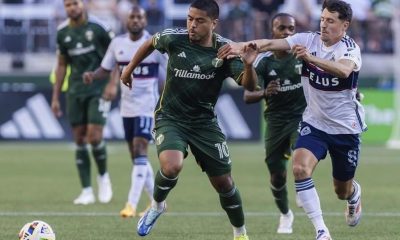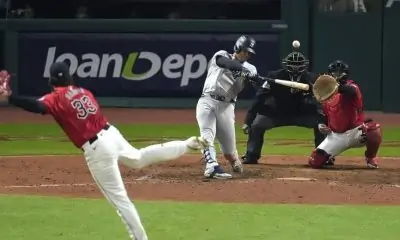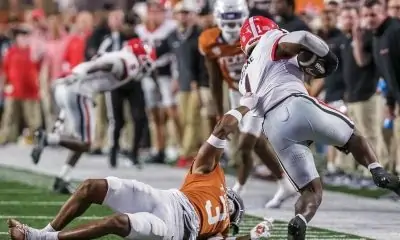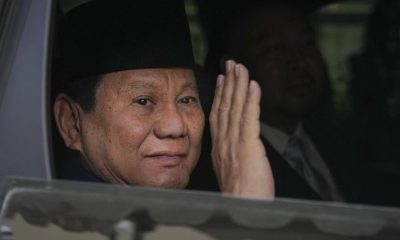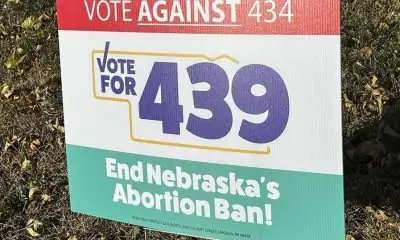Blake Masters is running for the Republican Senate nomination in Arizona. His candidacy mirrors that of Ohio Republican nominee J.D. Vance: They share a political outlook, a background in finance and a corporate sponsor, Donald Trump ally Peter Thiel. Like Vance, Masters also secured Trump’s endorsement for his candidacy.
Politics
Analysis | Blake Masters perfects the right's approach to racial politics – The Washington Post
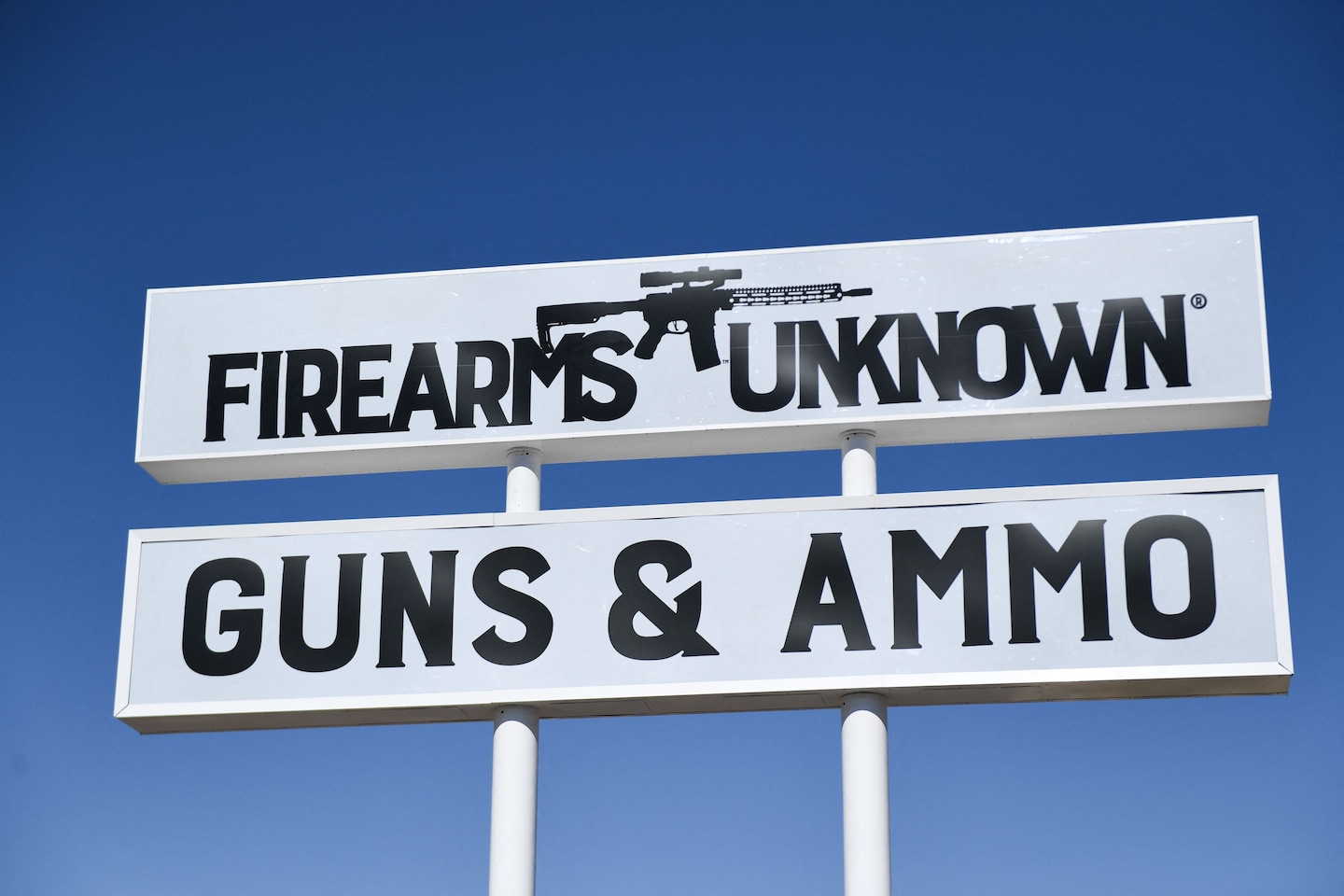
To date, though, Masters’s candidacy has not attracted much national attention, at least not compared with the way in which Vance was able to parlay his celebrity and friendship with Fox News’s Tucker Carlson into a regular spotlight. (Hence my identifying who he was in the first sentence of this article.) But that will change as Arizona’s August primary draws closer — and if comments from Masters like the one unearthed by the Daily Beast on Sunday continue to crop up.
Masters was speaking with an Arizona podcast host named Jeff Oravits in early April, at about the time that the Senate was considering the nomination of Ketanji Brown Jackson to the Supreme Court. Masters, predictably, criticized Jackson as an “affirmative action candidate” because President Biden had committed to nominating a Black woman. “Most people aren’t obsessed with race and affirmative action,” Masters told Oravits, later adding that “to discriminate against all men and all women of other races, I think, is pretty wild.”
This was a theme of Masters’s comments: that Americans don’t like all this talk about race.
“Most Americans just — they just want to stop obsessing about race all the time,” he said at another point. “But the left’s biggest tool in their tool kit is just to divide people on the basis of race.”
Were this a suspense novel, this would count as foreshadowing.
The conversation was happening two months ago and not in the wake of recent mass shootings. But because gun violence is an ever-present component of American life, the subject came up. Biden had announced a new program aimed at curtailing unregistered firearms, something that Masters insisted was aimed at “disarming law-abiding people like you and me.”
He then offered another criticism of his political opponents.
Democrats “don’t actually care about crime, right?” Masters said. “Like, we do have a gun violence problem in this country and it’s gang violence, right? It’s gangs. It’s people in Chicago, St. Louis shooting each other.”
“Very often, you know, Black people, frankly,” he added. “And the Democrats don’t want to do anything about that.”
We should consider Masters’s assertion as an argument, and will in a second. (Masters’s campaign did not respond to a request by the Daily Beast for comment.) But consider why Masters is making this specific claim.
It’s not simply a standard whatabouting of Chicago’s crime rate, an argument that often fails to account for the size of the city’s population. It is, instead, to argue that Democrats specifically aren’t interested in combating gun violence that involves Black people. That the left is insincere in talking about guns except when it can use the subject as a cudgel against the right — and specifically White people. It’s of a piece with the Jackson criticism: Democrats are just discriminating against other races yet again. In short, it is Masters dividing on the basis of race.
It is also a bad argument. Enormous resources have been put into place to help curtail gun violence in Black communities: investments from governments and nonprofits, and studies of why gun violence is, in fact, higher among Black people. Data from the Centers for Disease Control and Prevention shows that from 2017 through 2020, the rate of gun deaths among Black people was 25.8 per 10,000 compared with 12.3 per 10,000 among White people. White people had higher rates of gun suicides (10.1 to 3.7 per 10,000), but Blacks had higher rates of gun deaths otherwise (22.1 to 2.2 per 10,000).
That disparity varied by population density, according to the CDC data. In large metropolitan counties, the overall rate of firearm-related deaths among Blacks was 30.3 per 10,000, three times that of Whites. In rural areas, the rates for Blacks and Whites were nearly the same (20.8 vs. 17.6 per 10,000). Much of the White rate in rural areas, though, was a function of suicides. Looking only at firearm deaths related to assaults, Black rates of deaths were far higher in large cities (26.2 vs. 1.7 per 10,000) but also substantially higher in rural counties (16.2 vs. 2.4 per 10,000).
One factor that accounts for this is income. In 2020, the real median household income for White Americans was 1.6 times that of Blacks. Black Americans had the highest rates of gun deaths and the lowest incomes. Asian Americans had the lowest rates of gun deaths and the highest incomes.
That said, statisticians at the University of Pennsylvania last year found that even in neighborhoods with equivalent middle-class household incomes, heavily Black neighborhoods had higher rates of gun violence. Why? According to the professor who led the research, it’s probably in part a function of historical patterns of discrimination.
“[T]here tends to be less public and private investment in majority-Black neighborhoods,” Dylan Small said in an interview with Penn Today. “That can translate into fewer resources in the neighborhood, especially relative to need. For example, a lack of resources for programs for adolescents and young adults that might help them to stay away from gangs and street conflicts.” Small also pointed to historical housing discrimination patterns: “Even among neighborhoods of the same socioeconomic status, residential segregation may put Black individuals at higher risk of gun homicide.”
These patterns are ones that are at the heart of the recent focus on systemic racism in the United States, racism that is manifested not in specific anti-Black or anti-minority actions but, instead, in long-standing, ingrained patterns of economics, politics and the law. Examining those patterns is a focus of “critical race theory” — the actual theory, that is, not the straw man that has been a staple of conservative rhetoric for 24 months.
As exemplified a year ago by Blake Masters, then not yet a candidate for the Senate.
“All [critical race theory] does is teach kids to identify in racial terms,” he said at an event in Phoenix. “You are good or bad, depending on what you look like. At this point it is straight up anti-White racism.”
There, again, is the same pattern: It’s Whites who are the targets of repression — here because of how Masters misrepresents a regimen for understanding systemic racism. Both Trump and Trump supporters have consistently expressed disproportionate concern about purported reverse racism against White Americans, reinforcing the potency of Masters’s argument. Trump also got into trouble as a candidate in late 2015 for offering a distorted set of data on gun violence and race. It did him no long-term harm.
There is a real problem with gun violence nationally, both from suicides and homicides. Black Americans do experience higher rates of gun violence, something for which Masters — as an averred disparager of critical race theory — offers no explanation beyond simply identifying race. But it’s the left that uses race unfairly to target Whites and, by extension, conservatives.
That, in a nutshell, is how race is used as a mobilization tactic on the right: in part by claiming that the left uses it as a mobilization tactic.
Politics
Breakingnews: B.C. Conservative Leader John Rustad elected in his riding
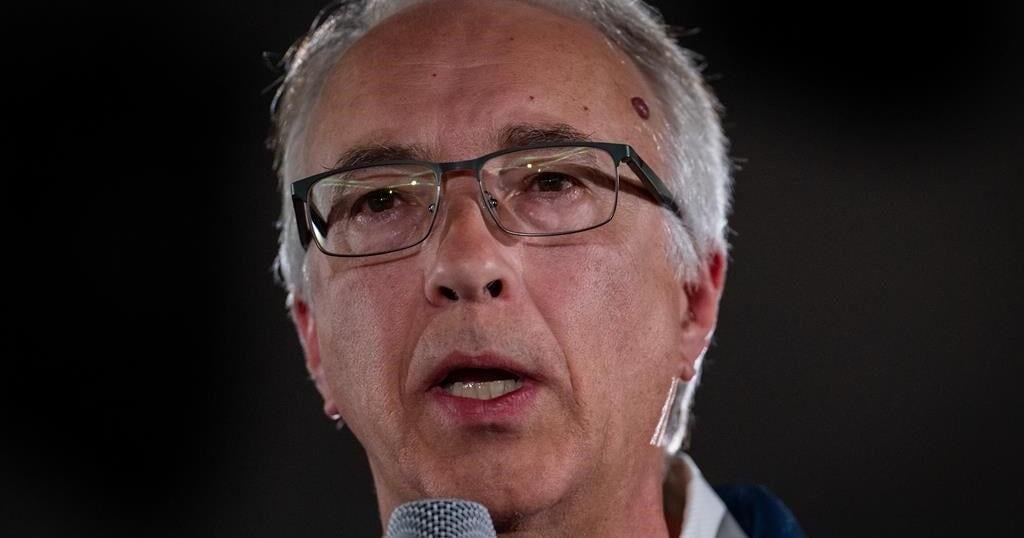
VANDERHOOF, B.C. – British Columbia Conservative Leader John Rustad has been re-elected in his riding of Nechako Lakes.
Rustad was kicked out of the Opposition BC United Party for his support on social media of an outspoken climate change critic in 2022, and last year was acclaimed as the B.C. Conservative leader.
Buoyed by the BC United party suspending its campaign, and the popularity of Pierre Poilievre’s federal Conservatives, Rustad led his party into contention in the provincial election.
The Canadian Press. All rights reserved.
Politics
Early tally neck and neck in rain-drenched British Columbia election
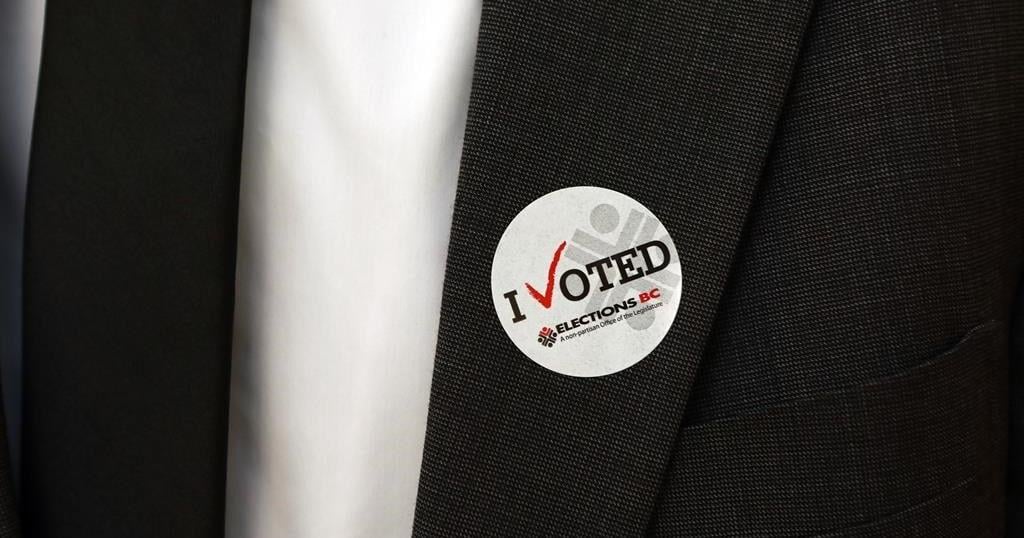
VANCOUVER – Predictions of a close election were holding true in British Columbia on Saturday, with early returns showing the New Democrats and the B.C. Conservatives neck and neck.
Conservative Leader John Rustad was elected in Nechako Lakes, and 20 minutes after polls closed, his party was elected or leading in 46 ridings, with the NDP elected or leading in 45.
Among the early winners were the NDP’s Ravi Kahlon in Delta North and Niki Sharma in Vancouver-Hastings, as well as the Conservatives’ Bruce Banman in Abbotsford South.
It was a rain-drenched election day in much of the province.
Voters braved high winds and torrential downpours brought by an atmospheric river weather system that forced closures of several polling stations due to power outages.
Residents faced a choice for the next government that would have seemed unthinkable just a few months ago, between the incumbent New Democrats led by David Eby and Rustad’s B.C. Conservatives, who received less than two per cent of the vote last election
Green Leader Sonia Furstenau has acknowledged her party won’t win, but she’s hoping to retain a presence in the legislature, where the party currently has two members.
Elections BC has said results are expected quickly, with electronic vote tabulation being used provincewide for the first time.
The election authority expected most votes to be counted by about 8:30 p.m., and that the count would be “substantially complete” within another half-hour.
Six new seats have been added since the last provincial election, and to win a majority, a party must secure 47 seats in the 93-seat legislature.
There had already been a big turnout before election day on Saturday, with more than a million advance votes cast, representing more than 28 per cent of valid voters and smashing the previous record for early polling.
The wild weather on election day was appropriate for such a tumultuous campaign.
Once considered a fringe player in provincial politics, the B.C. Conservatives stand on the brink of forming government or becoming the official Opposition.
Rustad’s unlikely rise came after he was thrown out of the Opposition, then known as the BC Liberals, joined the Conservatives as leader, and steered them to a level of popularity that led to the collapse of his old party, now called BC United — all in just two years.
Rustad shared a photo on social media Saturday showing himself smiling and walking with his wife at a voting station, with a message saying, “This is the first time Kim and I have voted for the Conservative Party of BC!”
Eby, who voted earlier in the week, posted a message on social media Saturday telling voters to “grab an umbrella and stay safe.”
Two voting sites in Cariboo-Chilcotin in the B.C. Interior and one in Maple Ridge in the Lower Mainland were closed due to power cuts, Elections BC said, while several sites in Kamloops, Langley and Port Moody, as well as on Hornby, Denman and Mayne islands, were temporarily shut but reopened by mid-afternoon.
Karin Kirkpatrick, who is running for re-election as an Independent in West Vancouver-Capilano, said in a statement that her campaign had been in touch with Elections BC about the risk of weather-related disruptions, and was told that voting tabulation machines have battery power for four hours in the event of an outage.
West Vancouver was one of the hardest hit areas for flooding, and Kirkpatrick later said on social media that her campaign had been told that voters who couldn’t get to a location to cast their ballot because of the extreme weather could vote through Elections BC by phone.
— With files from Brenna Owen
This report by The Canadian Press was first published Oct. 19, 2024.
The Canadian Press. All rights reserved.
Politics
Breaking News: B.C. Green Leader Sonia Furstenau loses seat after changing ridings
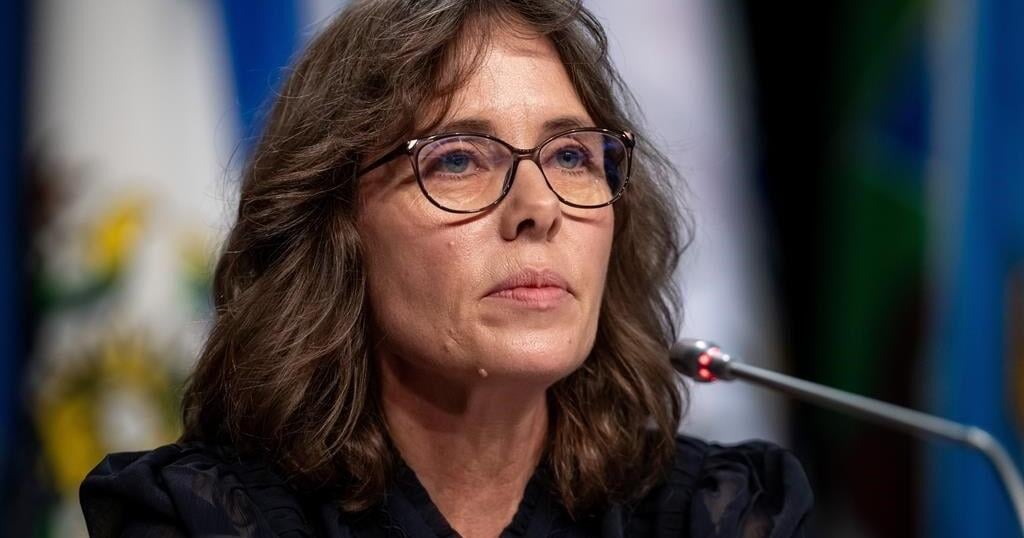
VICTORIA – Green Party Leader Sonia Furstenau has lost her seat in the legislature after changing ridings to Victoria-Beacon Hill.
Furstenau lost to Grace Lore, the minister of children and family development in the previous NDP government.
The Green leader was first elected 2017, when her party played a key roll in helping the New Democrats form government with a confidence and supply agreement between the two parties.
The Canadian Press. All rights reserved.
-

 News10 hours ago
News10 hours agoFreeland says she is ‘absolutely confident’ Liberal MPs still support Trudeau |
-

 News10 hours ago
News10 hours agoThe NDP, B.C. Conservative leaders vie for votes ahead of Saturday’s election
-

 News10 hours ago
News10 hours agoTobacco victims hail ‘historic’ $32.5-billion deal |
-

 News11 hours ago
News11 hours ago‘Hateful and mean’: LGBTQ+ advocates slam Sask. Party’s proposed change room policy
-

 News11 hours ago
News11 hours agoWhere will B.C.’s election be won or lost? Here are five bellwether ridings to watch
-

 News12 hours ago
News12 hours agoFearing demolition, Montreal skateboarders rally to protect DIY skatepark from city
-

 News12 hours ago
News12 hours agoB.C. voters face a once-unthinkable election choice, after stunning rise of Rustad
-

 News11 hours ago
News11 hours agoVoters head to the polls today in Halifax and other Nova Scotia municipalities



